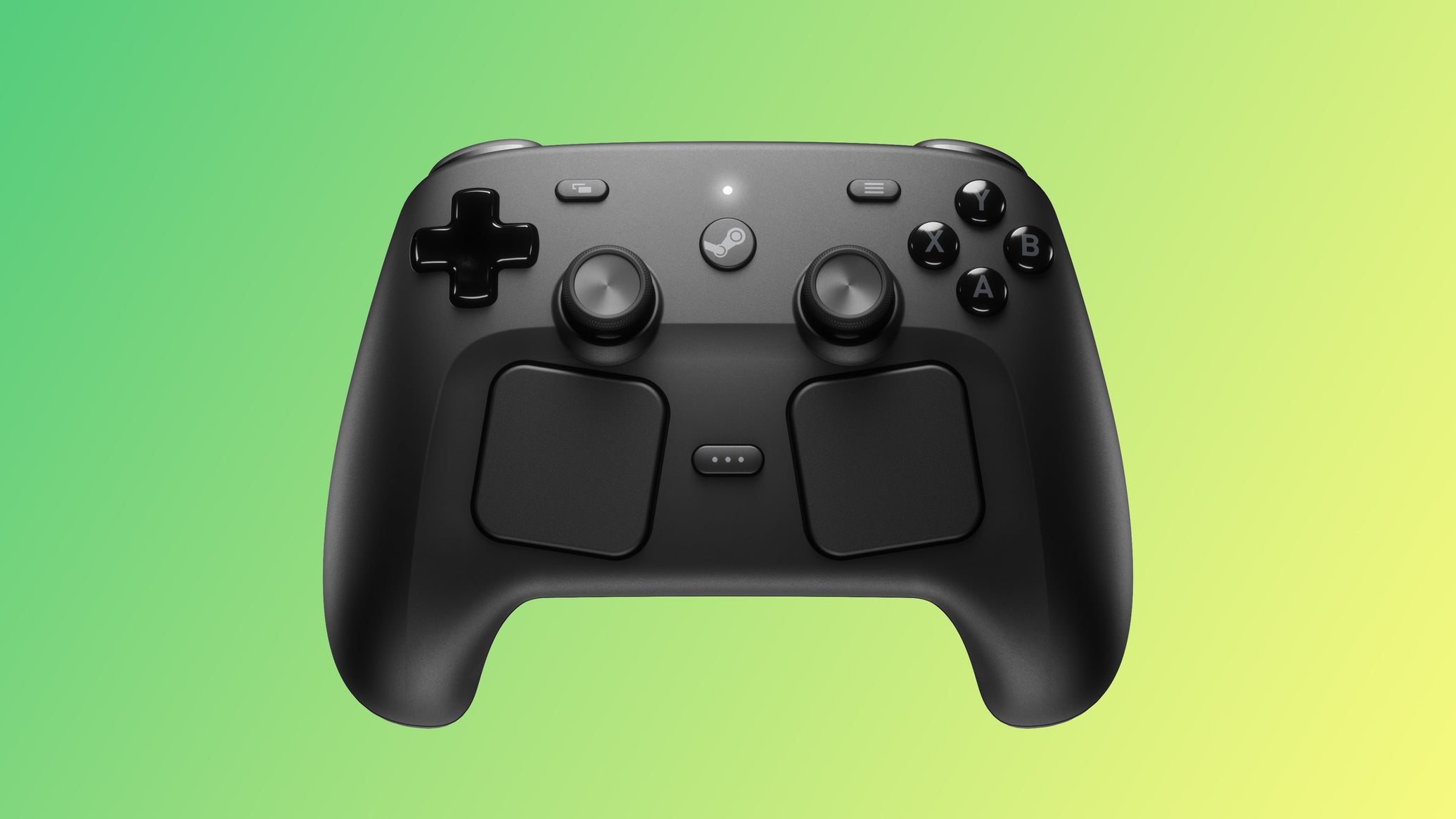
The bridge between mouse-and-keyboard and couch gaming returns.The Steam Controller might appear to be just the gamepad that is built to accompany the Steam Machine and augment the Steam Frame, but Valve's plans are a fair bit grander. After all, the Steam Controller will work with any PC, just like any PC gamepad will work on the Steam Machine, and it's a much-anticipated sequel for the small but passionate group that treasured the original Steam Controller.
The Steam Controller might appear to be just the gamepad that is built to accompany the Steam Machine and augment the Steam Frame, but Valve's plans are a fair bit grander. After all, the Steam Controller will work with any PC, just like any PC gamepad will work on the Steam Machine, and it's a much-anticipated sequel for the small but passionate group that treasured the original Steam Controller.
While the original model was quite unorthodox, with oversized concave touchpads taking the place of the d-pad and right stick, the new-look Steam Controller has more mainstream appeal. Its dual touchpads sit underneath a conventional Xbox-style layout of face buttons, d-pad and thumbsticks. There are also four rear buttons on the back of the controller, a popular feature on pro controllers.
Compared to the Steam Deck, the touchpads have been canted (rotated inwards) for an angle that its designers say is more natural for this form factor and significantly more comfortable for long-term use, alongside other minor ergonomic adjustments.
Inside, the thumbsticks have been upgraded to use magnetic (TMR) sensors rather than traditional potentiometers, a move that both maximises durability (helping to prevent stick drift) and boosts precision (by allowing for smaller dead zones). TMR sticks also use less power than another tech used for similar reasons, Hall Effect (HE), which is of obvious importance in a wireless controller.
TMR tech hasn't made it into a first-party console controller as of yet, but TMR and HE sticks have become increasingly commonplace in the third-party market, so this move makes a lot of sense. Interestingly, the triggers haven't been changed to use HE sensors, something that we do normally see on modern gamepads with TMR sticks.
The controller's gyro-based motion controls have also been improved by the inclusion of "GripSense", a new feature that is able to detect how you're holding the controller and activate or deactivate gyro aiming accordingly. The same functionality can also be used to trigger other effects if you prefer. Finally, the haptics have also been upgraded versus the original model, with dual high-fidelity motors providing nuanced rumble feedback in addition to the motors behind each touchpad.
While the Steam Controller communicates with the Steam Machine without the included dongle, you'll want to retain it for easier charging as it clips to the back of the gamepad magnetically. Valve estimates that the controller will operate for around 35 hours in a worst-case scenario.
Each dongle can support up to four Steam Controllers too, which is handy for playing co-op or party games around a TV. Latency ought to remain at a low 8ms regardless of the number of controllers used, with similar latency if you're playing wired via USB and slightly worse latency if you're playing via Bluetooth.
We'll have to wait to go hands-on with the Steam Controller before judging it, but the upgrades seem sensible and I'm particularly interested in whether GripSense turns me into a gyro aiming aficionado.
More importantly, I'm just glad that people intrigued by the promise of the Steam Controller will be able to pick one up at retail prices, rather than paying way over asking price for one of the few surviving original examples on Ebay.
For much more on what Valve is detailing today, check out our coverage below.
Bản xem trước mở rộng – Nội dung chưa đầy đủ.